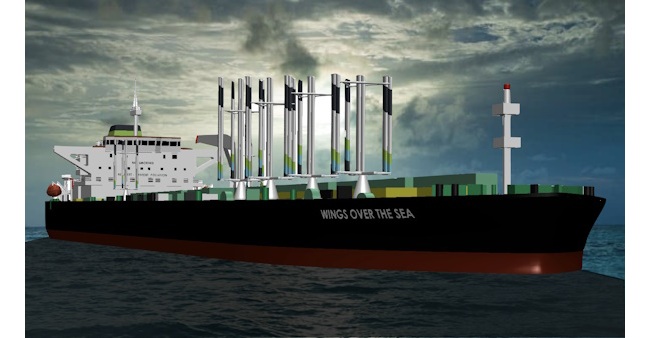Goal 7: Affordable and clean energy
Ensure access to affordable, reliable, sustainable and modern energy for all
Our research
Bristol researchers are developing the next generation of wind power – drones that can harvest wind energy at higher altitudes. This exciting new field of Airborne Wind Energy Systems could help reduce carbon emissions further, provide greater flexibility in renewable energy, and offer accessibility to more remote areas. An area with huge potential, researchers are working to understand the intricate requirements and complex systems required to make drone wind harvesting viable.
Bristol was confirmed as a leader in the field of fusion technologies, with three projects awarded funding by the UK Atomic Energy Authority in 2023. The projects all relate to ongoing work to develop lithium technologies that are critical to the success of fusion energy, which has the potential to be a safe, sustainable, low carbon alternative to existing energy sources. The three University projects are focused on enriching lithium isotopes, creating the necessary fuel for fusion to be self-sufficient, and unlocking plasma-based technologies.
In 2024, University researchers and colleagues at the National Composites Centre teamed up with local marine engineering start-up WingTek to take the next step in developing new technology that will reduce harmful emissions from maritime and marine vessels. A unique wind auxiliary propulsion system, Wingsail, can complement existing ship systems to reduce their reliance on fossil fuels, and can be easily adopted by existing fleets.

Our students
In 2024, the University launched its new MSc Sustainable Engineering programme, offering students the opportunity to develop their knowledge and gain skills that will help them tackle global sustainability challenges. One of the three pathways offered by the programme is focused on Renewable Energy, with specialist modules focused on renewable energy and wind energy systems.
The University’s Cabot Institute for the Environment held a sustainability-themed careers event for students in October 2024. The Networking for Sustainability session included talks on topics including energy systems, offshore wind power, hydrogen energy, and low carbon buildings, as well as displays from a number of companies. The session was then followed by a panel discussion featuring five leading figures from the renewable energy and sustainability sectors, who talked to students and staff about the opportunities and challenges of the UK’s transition to Net Zero.
Our communities
Researchers from Bristol shared a number of policy recommendations around the infrastructure needed to facilitate community-led energy initiatives in a policy briefing released in October 2023. Community energy organisations are a vital part of the UK’s move towards decarbonisation and Net Zero. Recommendations included better information sharing, improved local energy planning, strategic investment, and reform of the national energy grid.
The Cabot Institute for the Environment welcomed speakers from the UK Space Agency, the European Space Agency, and the Department for Energy Security and Net Zero for a workshop in on space-based solar power. This potential source of clean, sustainable energy involves collecting solar energy in space using satellites. Following this event, in October 2023, the Metro Mayor for the West of England visited the University to meet with experts on this technology. The Mayoral Authority is funding work on Space West - the region’s space cluster, which involves the University - and will double the 1,000 people working in the region’s space industry over the next four years.
Ourselves
In October 2024, the University and the National Composites Centre signed a strategic partnership agreement with sustainable energy company Vestas. The partnership will see University researchers working with Vestas to develop innovation solutions to advance the wind energy sector, improve wind turbines, and help us meet Net Zero targets.
The 2023/24 academic year saw the University reach a decrease of almost 51% in scope 1 and 2 carbon emissions from buildings since our baseline 2005/06 year, which is a great accomplishment, but further work is needed to continue this progress. Our ambitions going forward include ensuring new building and refurbishment both meet the highest energy standards, and increasing our use of self-generated or local heat and electricity from zero or lower carbon sources.
